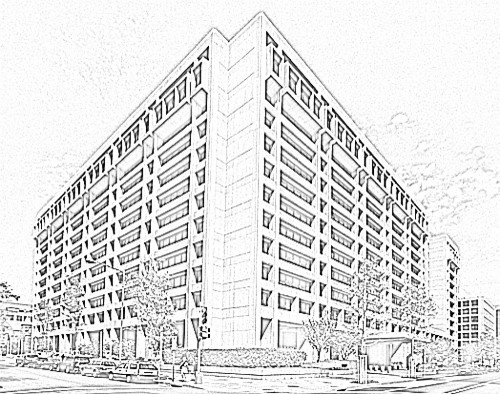By David P Rowe
Op-Ed Contributor
It is obvious that the IMF and the JLP government were either in continuous disagreement or that they were unable to enter a mediated agreement over the last year. According to the IMF’s website, Jamaica has not passed an IMF test since September 2010, and taken none since December 2010. The current agreement comes to an end in May and Jamaica will likely have to enter a Stand-by Agreement, opt for a Staff Monitored Programme or choose an Extended Fund Facility.
It is unfortunate that no detailed report has been made to academics, Parliament or the press about the progress, or lack of progress, of the IMF Negotiations. This has led to some doubt as to the actual state of affairs of the Jamaica file at the IMF.
It is clear that under the old agreement, the IMF wants Jamaica to reduce the costs of the public sector. This means that public sector jobs would have to be cut. Under this agreement Jamaica would have to reduce its expenditure on wages, by some estimates, from 11.5 percent of GDP to 9 percent of GDP by 2016.
In order to accomplish this, a 20,000-worker public sector job reduction and a pension readjustment for the police was contemplated. It would have been a bitter pill to swallow and the Jamaican electorate was not prepared to take this medicine.
One of the great problems facing Jamaica is the catastrophic price of energy. Last year, Jamaica spent $1.6 billion importing 20 million barrels of oil. That constitutes 37 percent of our total export earnings.
This means that it is impossible to preserve adequate foreign currency reserves, and it places continuous pressure on the value of the Jamaican dollar.
Alternative energy sources are required to moderate the very high cost of electricity in Jamaica. Wind farms and solar devices may very well become the “talk of the town” as Caribbean scientists desperately seek less expensive methods of charging the public for fuel.
Recent reports, like that of the World Bank, which ranked Jamaica 85th in the world and eighth in the Caribbean for ease of doing business, say we have too much red tape in Jamaica. This red tape is the product of a very inefficient efficient civil service inherited from the island’s British colonial heritage.
The red tape is perceived to inhibit economic activity. Before a car can be imported from abroad, a license is required. It is fairly difficult for foreigners, even members of the Jamaica Diaspora, to open bank accounts. North American tourists are generally not lobbied to invest in Jamaica despite the attractive investment climate of the island.
Perhaps the biggest problem in Jamaica is rampant police corruption and the influence of narcotics on the development of an “informal” economy that the government cannot tax and that the IMF cannot factor in to its quarterly tests.
The first emphasis of the Portia Simpson Miller government needs to be the reduction of the murder rate in Kingston. Crime reduction will attract investment, which will increase economic activity, including an expansion of exports. Increased exports will lead to the stabilization of the Jamaican dollar and give the government the scope to negotiate with the IMF for a mutually beneficial long-term arrangement.
Jamaica is a debt-ridden country. The IMF, in helping resolve Jamaica’s debt, must remember, however, that many Jamaicans are desperately poor and without economic prospects.
David P Rowe is an attorney in Florida and Jamaica and a professor of law at the University of Miami School of Law.
Note: the opinions expressed in Caribbean Journal op-eds are those of the author and do not necessarily reflect the views of the Caribbean Journal.
